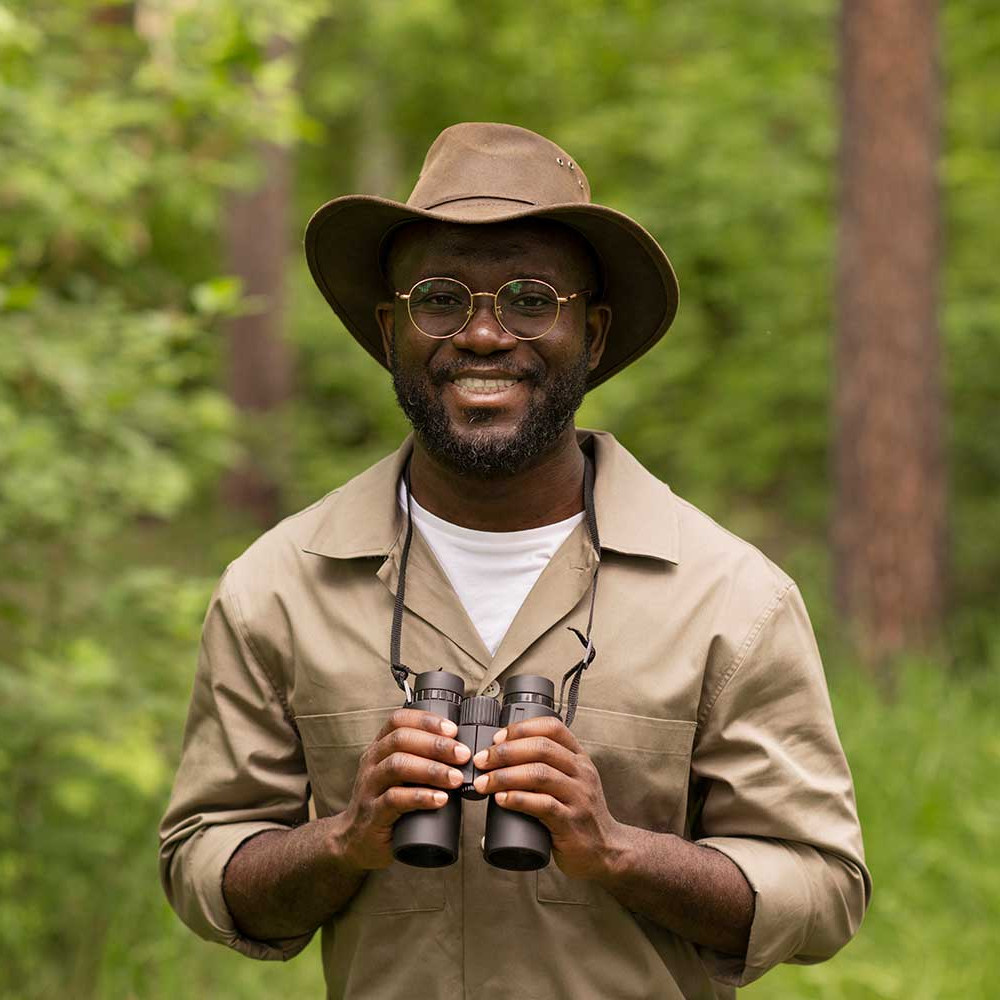Tipping in Botswana:
A Real-World Guide for Travelers
Tipping while traveling has always been complicated for me. I don’t usually travel with a big budget, but at the same time I like tipping my guides as a sign of appreciation and for their hard work. Because of that, I decided to create this short tipping guide for you, so whether you’re heading out on safari, staying in rural lodges, or passing through Maun for a night, you can know how and when to tip.
Here’s a breakdown of what you should know, including real numbers based on a recent trip (where $300 USD covered all food, tips, and a few thoughtful souvenirs for a entire week in Botswana).
How Much Should You Tip on Safari?
Safaris are the heart of Botswana’s tourism, and the guides and staff who make them happen usually work long days. Here’s what’s standard:

Guides: $10–$20 USD per guest, per day
These are your driver-guides who take you on game drives. If you’re doing bush walks or mokoro trips, the same rate applies. If you had one guide for the full stay and they were excellent, tipping at the higher end is a kind gesture.
Trackers (if separate): $5–$10 USD per guest, per day
Some lodges pair guides with local trackers, especially in areas like the Okavango Delta or private reserves. They’re incredibly skilled at reading the bush—worth recognizing.
General Camp or Lodge Staff: $5–$10 USD per guest, per day
Most lodges have a communal tip box at reception that gets divided among staff like housekeepers, kitchen teams, maintenance workers, and security. It’s a small thank-you for the people you may not see but who keep everything running.
Transfer Drivers or Airport Pickup: $2–$5 USD per ride
Especially if you’re doing short rides in/out of Maun or between camps.
📝 Tip: Most lodges accept USD or Botswana pula. Envelopes are often provided at checkout with a gentle tipping guideline inside. If you’re not sure, ask the manager discreetly.
Tipping at Restaurants or in Town
If you’re spending time in Maun, Gaborone, or Kasane and eating outside of your lodge:
Restaurants: 10% is the norm if service isn’t already added to your bill.
Double check—some places include a service charge, others don’t. Staff wages can be low, so tips really make a difference.
Porters: $1–$2 per bag at hotels or lodges
Housekeeping (in hotels or Airbnb-type stays): $1–$2 per day
Car guards or informal helpers: Small coins (1–5 pula) for helping you park or watching your car in town.
What $300 Got Me in Botswana for One Week
If your safari, lodges, and tours are already paid for (which was my case), $300 USD was more than enough for:
- Daily tips for guides, trackers, and staff
- Meals in Maun (6 dinners, 1 lunch, and random cafes)
- Bottled water and snacks for road days
- Small souvenirs like beadwork, baskets, and jerky.
- A few spontaneous moments
It’s always a good idea to carry small bills and change, ideally in pula, and split your cash between a wallet and a separate pouch.
Tipping in Botswana isn’t mandatory, but it is expected in most tourism settings—and deeply appreciated. Think of it as part of your travel budget, not an afterthought. It’s one of the most direct ways to give back to the people who make your safari magic happen
Are you ready to start discovering Botswana?
Here are the tours I did and personally recommend!





